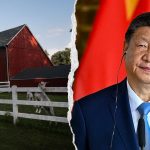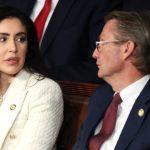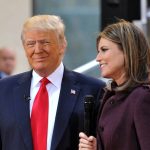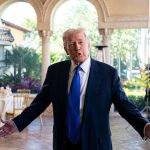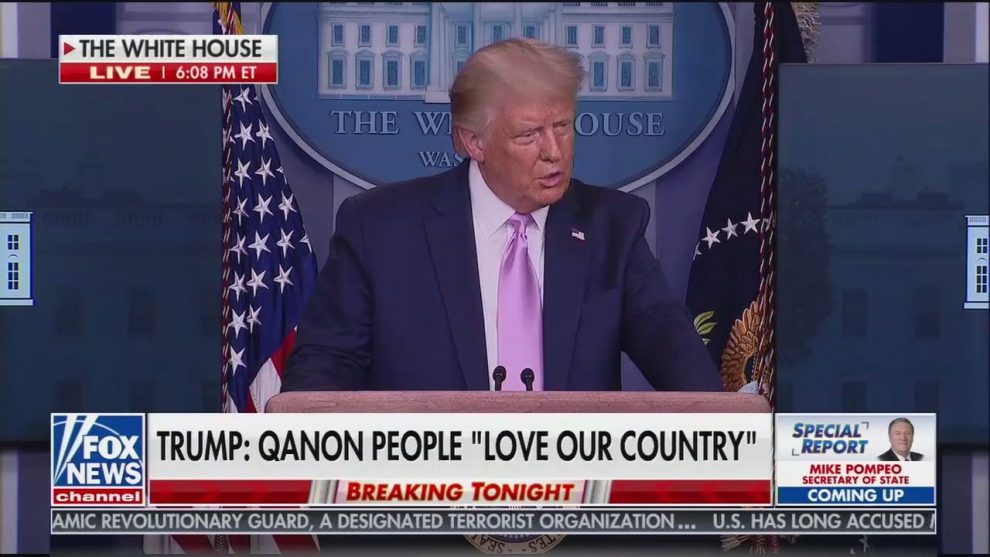President Trump on Wednesday offered measured praise for followers of the QAnon conspiracy theory, saying he’s not very familiar with the movement but that he believes its subscribers “love our country.”
In his most extensive comments about the conspiracy theory to date, Trump repeatedly said he was not well versed in QAnon, but painted its supporters in a positive light.
“I don’t know much about the movement other than I understand they like me very much, which I appreciate. But I don’t know much about the movement,” he said at a press briefing.
“These are people that don’t like seeing what’s going on in places like Portland and places like Chicago and other cities and states,” Trump said, mischaracterizing what the conspiracy theory focuses on. “I’ve heard these are people that love our country and they just don’t like seeing it. I don’t know really anything about it other than they do supposedly like me. And they also would like to see problems in these areas … go away.”
A reporter attempted to explain to the president that QAnon is a conspiracy theory that posits that Trump and his allies are working together to expose and arrest an underground cabal of global elites who control the government and run child sex trafficking rings.
“Well, I haven’t heard that, but is that supposed to be a bad thing or a good thing?” Trump replied. “If I can help save the world from problems, I’m willing to do it. I’m willing to put myself out there.”
The conspiracy theory has been blamed for violent incidents, and social media platforms such as Twitter and Facebook have taken action in recent weeks to suspend groups and accounts associated with it.
Trump was also asked whether he supported the conspiracy last week but dodged the question. White House press secretary Kayleigh McEnany told reporters earlier Wednesday that she’d never heard Trump discuss QAnon.
The once-fringe movement has grown dramatically in the last few years, with estimates that put its adherents in the hundreds of thousands.
That expansion has been enough to have the FBI label the loose community of believers as a domestic terror threat last year.
The theory has also entered the mainstream political space, with multiple Republican congressional candidates expressing support for it before winning GOP primaries this year.
One in particular — Marjorie Taylor Greene of Georgia — has been praised effusively by Trump despite her support of QAnon and history of racist and anti-Semitic comments. Greene is favored to win her general election in the fall.
Although Trump has never offered a full-throated endorsement of the theory, he has not condemned it either, despite opportunities to do so, and has boosted many of its followers.
Trump has retweeted QAnon-affiliated accounts dozens of times, while former members of his administration, such as ex-national security adviser Michael Flynn, have publicly embraced the theory.
Trump’s remark that QAnon supporters like him very much is an undersell: The president is considered almost a deity in the convoluted theory. QAnon supporters are unflinching in their support of him, even as many of the actions predicted by the theory’s source — an anonymous individual known as Q who claims to have inside knowledge — have failed to pass.
While the theory’s tent is incredibly broad, with sub-conspiracies about Hillary Clinton eating children fitting right alongside others about the 9/11 attacks being false flags, it pays very little attention to events such as protests against police brutality in Portland, Ore., or Chicago.
The targets of the group’s attention are much more conspiratorial in nature and normally somewhat tied to child trafficking. For example, the QAnon community was involved in and amplified the false story that online retailer Wayfair was selling children along with its furniture.
Story cited here.


